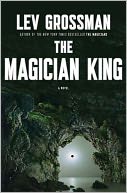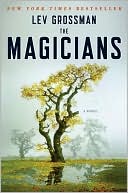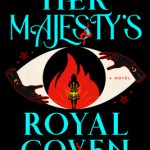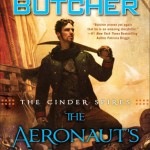There are two kings and two queens in Narnia…no wait, I meant Fillory.
 Lev Grossman’s The Magician King is a return to the universe that Grossman constructed in his breakout hit, The Magicians, just a different section of it.
Lev Grossman’s The Magician King is a return to the universe that Grossman constructed in his breakout hit, The Magicians, just a different section of it.
In The Magicians, Grossman introduced us to Brakebills, a Hogwarts for college students, but in upstate New York instead of the wilds of Scotland.
If The Magicians was Harry Potter for grown-ups, then The Magician King is definitely Narnia.
The end of Magicians leaves Quentin Coldwater one the kings of Fillory, the imaginary world he loved as a child that turned out not to be imaginary after all. A very real version of Narnia, except the original access was through a clock instead of a wardrobe, and there were only five books instead of seven. Minor details.
Magician King opens with Quentin and two other Brakebills graduates, plus Julia, as the four kings and queens of Fillory. Julia’s lack of credentials from Brakebills is a a critical part of the story.
Quentin is bored. Being a king of a magical kingdom is unfulfilling. There is nothing that needs doing. There are no quests. Fillory takes care of itself. So when it is discovered that the Outer Islands have not paid their taxes in several years, Quentin decides that handling the problem is something he needs to do to show himself to some of his people.
Julia comes along, as does a Talking Sloth, a champion, and an apprentice mapmaker. And in the Outer Islands, on the island of After (thus named because the island was found After the border of the kingdom of Fillory) Quentin finds a golden key that opens the door to his quest. Which leads him through Julia’s discovery of her magic outside of Brakebills, and saves Fillory.
But Quentin learns that heroes always pay a high price to save the day. Especially when they save all the days yet to come. And the hero sometimes doesn’t even get the girl to comfort him.
 Reading The Magicians, it is impossible to miss the parallels to Harry Potter. With Magician King, it’s just as easy to see Narnia everywhere you look. But what makes Magician King different is that so much of the story is told from the “Magician Queen’s” perspective–it is Julia’s non-Brakebills hedge witch education that is needed to solve the puzzle. And it is Julia’s story and Julia’s broken psyche that the reader identifies with and feels for through much of the book, right up until the very end.
Reading The Magicians, it is impossible to miss the parallels to Harry Potter. With Magician King, it’s just as easy to see Narnia everywhere you look. But what makes Magician King different is that so much of the story is told from the “Magician Queen’s” perspective–it is Julia’s non-Brakebills hedge witch education that is needed to solve the puzzle. And it is Julia’s story and Julia’s broken psyche that the reader identifies with and feels for through much of the book, right up until the very end.
The story of The Magicians is that of the privileged group who finds out that magic is real and that they can wield it. They grab on with both hands and hang on for the ride. In Magician King, we discover that Julia found out that magic was real, but that it was denied her–she failed the test–and it broke her. We all hope we would be Quentin and his friends, and fear we would be Julia.
Escape Rating A: The Magician King is a terrific fantasy. It does stand on the shoulders of Narnia. When Eliot, the High King of Fillory, refers to some of the quests he conducted while Quentin and Julia were off on their own journey, the echoes of Voyage of the Dawn Treader were extremely close. But Julia’s journey is much harder and longer than any that Aslan inflicted on any of the Pevenseys, or even Edmund. It’s worth your time to the journey with them.
And once a King in Fillory, always a King in Fillory. I hope.









One thought on “The Magician King”
Comments are closed.